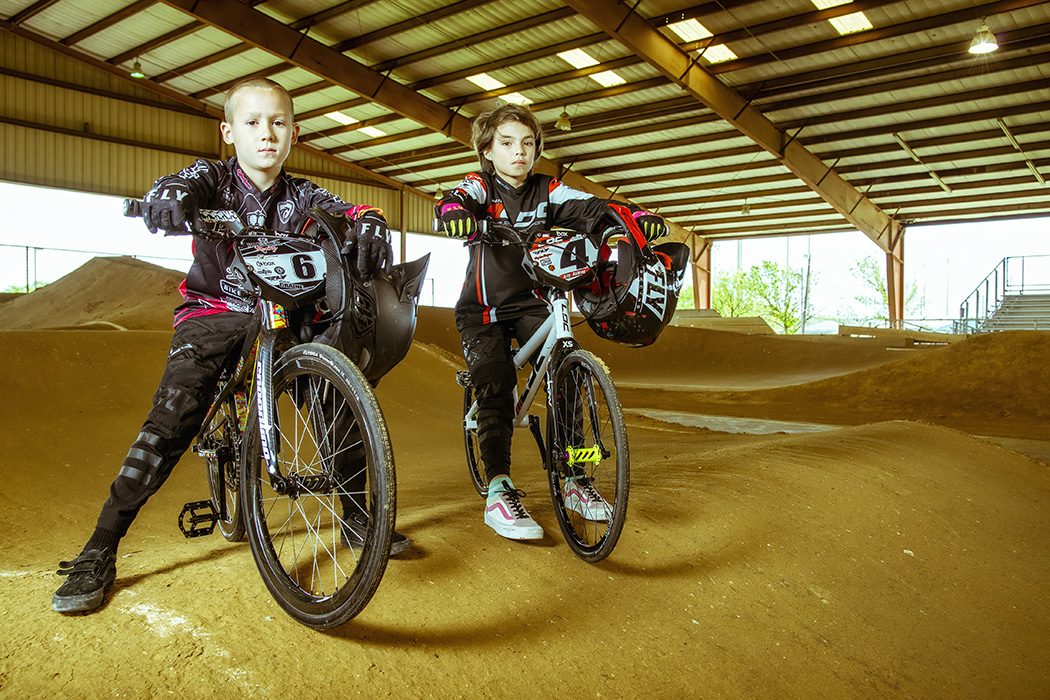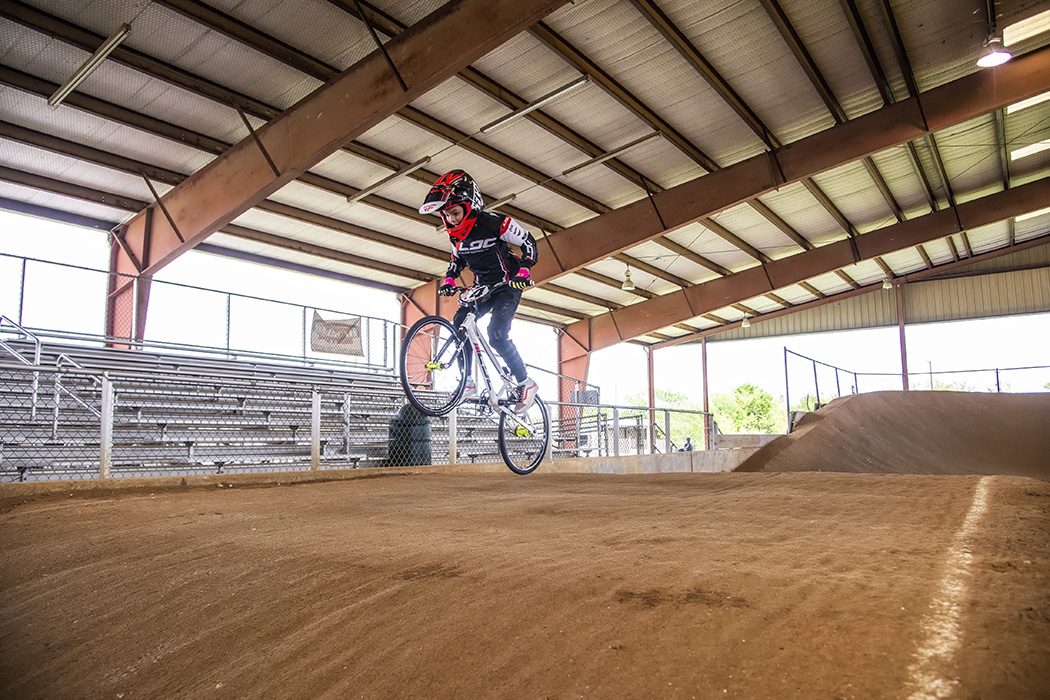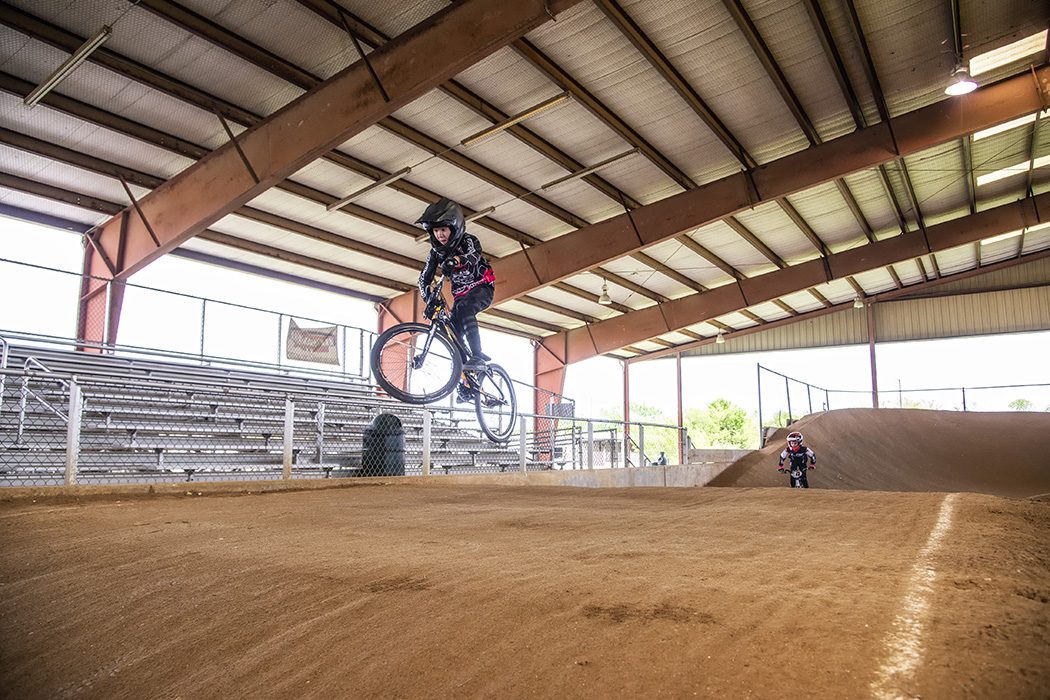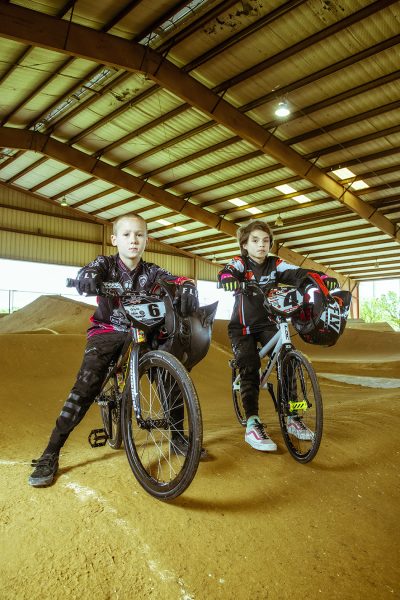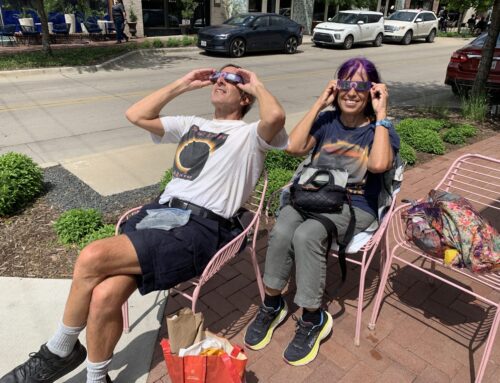Two Oak Cliff kids should be heading to Houston later this month for the BMX World Championships. Lily Ashley and Oliver Craine won national races earlier this year that earned them spots in the tournament, now postponed, at the $25-million Rock Star Energy Bike Park that opened in Houston last summer. The 9-year-olds both train and race at DeSoto BMX, the dirt track that’s about 12 miles south of Oak Cliff.
Lily Ashley is a fifth-grader at Sidney Lanier Expressive Arts Vanguard. Her parents are Miranda and Michael Ashley.
How she got into BMX:
Lily started riding mountain bikes at age 4, and her family often rides together at Oak Cliff Nature Preserve, which is about a mile from their house in Hampton Hills. That park closes when conditions are too wet, and during a rainy fall season in 2018, the Ashleys were getting antsy to ride. That’s how they found DeSoto BMX, which stays open when it rains because it has a roof. “She tried it, and she was hooked from then on,” her mom says. Now Lily is such an accomplished racer that she was picked up by a “factory team” and is sponsored by Little Dude Components, which outfits her with bikes and other gear.
How she qualified for worlds:
After some practice on the DeSoto track, Lily started racing locally and then traveling for state and national races. She won first place in all four rounds at the Lone Star Nationals, which were held at the Houston track in October. Now she’s ranked No. 2 in the nation among 10-year-old girls.
[quote align=”right” color=”#000000″]“It’s hard to train for BMX when you don’t know what’s going to happen.”
[/quote]How she trains:
Lily has a coach, professional BMX racer Shealen Reno. Normally Lily works out three or four days a week from a schedule that Reno provides, and on those days, she also does sprints on her bike or a long ride. Twice a week, she works out with Reno at the track.
The DeSoto advantage:
“It’s really great because the track is covered, so they can go out there and practice in almost any weather,” Miranda says. “The kids who come out of DeSoto are really good because they never have to take a break from racing.”
What life is like during the coronavirus pandemic:
“Boring!” Lily says. She and her parents frequently take long rides on the Trinity River levees for fitness. It’s frustrating because they don’t know when or if the world championships will be rescheduled. “It’s hard to train for BMX when you don’t know what’s going to happen,” Miranda says. “When kids come back from injury and can’t race for even a week, they lose seconds on the track, and seconds matter in BMX.”
What happens now?
“So I qualified for nothing!” Lily says. The agency that oversees the BMX world championships, UCI, hasn’t decided whether to hold this year’s races. Lily competed for world championship qualification because of the races being in Houston, Miranda says, “Then she won the whole thing!” Next year’s BMX world championships will be in The Netherlands.
Oliver Craine is a fifth-grader at the Kessler School. His parents are Patrick and Cindy Craine, and he has two sisters, Eloise, 10, and Ruthie, 7, who also race BMX.
How he got into BMX:
The Craines also started out at the Oak Cliff Nature Preserve, where Lily’s and Oliver’s dads are trail stewards. Oliver’s dad was into bicycle road racing as a youngster, and he enjoyed riding on country roads outside of New York City when he lived there. But he took up mountain biking after moving here to avoid tangling with Dallas traffic. The family started going to the DeSoto BMX track about two years ago.
How he qualified for worlds, at Black Mountain BMX in Arizona:
“I got in the gate, and I just felt like I had a desire to do something, and my desire was to win, and I just decided to go as hard as I could and try to win,” Oliver says. He’s sometimes too nice a kid to elbow his way to the front, his dad says. But he was aggressive enough that time to win second place behind the kid who is ranked No. 1 in the nation.
How he trains:
Oliver normally spends three or four nights a week at the DeSoto track, and he races there on Fridays and Saturdays. Sometimes they race on Sundays at Cowtown BMX in Fort Worth. He also has a pro racer for a coach, Damien Lacombe. Since the coronavirus lockdown, he does intense strength-training workouts and mostly rides his bike indoors on rollers.
The BMX scene:
“It’s a great family sport,” Patrick says. “There are good people, and it’s a great atmosphere where there’s people at all different levels. It’s a really great scene, and I feel like nobody really knows it exists. The sport in the U.S. has zero visibility. But then people don’t realize there’s this amazing place where you can take your kids to learn this individual sport that builds not only bike skills but also life skills.”
Racing on the national circuit:
USA BMX puts on national races almost every weekend, and Oliver has raced in 15 or 20 of them over the past year. Most races have three or four knockout rounds, and just this year, Oliver started making his main events.
On making jumps and taking risks in racing:
It’s scary sometimes, Oliver says. “Sometimes I feel like I know that I can do it, and I just send it,” he says.
Balancing school and sports:
To race on the national circuit, Oliver has to leave on Thursday afternoon or Friday morning, missing school. “We pack the bikes up into bags that look like golf bags and get them on the plane and get to the hotel and build the bikes in the hotel room. Then we go to the track and practice, and we’ve got to do makeup work in the process,” Patrick says. “It’s been fun watching him take responsibility for not only his training, which is about 15 hours a week, but also making the sacrifice of having to do school and racing at the same time.”
What life is like during the coronavirus pandemic:
“It’s been hard not having a track,” Patrick says. “But it’s been good in a way because … you have to remind yourself that this is an 8- or 9-year-old kid. The level that they have to perform at in these races is high. It’s stressful. And sometimes there are moments that are not very fun.” Taking a break has been enjoyable after traveling almost every weekend, he says. “The quarantine time has been mostly hard, but there’s been a lot of moments when we’ve enjoyed having a meal together or playing a game at night instead of being at the track. There’s been an injection of life balance that’s been pretty nice.”

